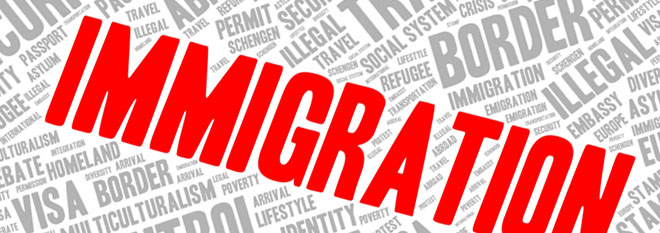
2016-2017 Immigration Policy Changes/Updates
Every year the immigration and visa policies/laws are amended. It can be difficult to keep up to date on the new changes. Last week while renewing my visa, I realized that there have been several updates to the existing visa policies.
The information is, at times, not readily available. Sometimes, the jargon used is too difficult for a layman to understand. Therefore, I decided to make this post about a few recent changes to the visa requirements.
Changes To The Processing Period of Nationality Acquisition Affairs as of JAN. 2017 (국적취득 처리기간)
There are various methods to acquire Korean Nationality. For example: General Naturalization (over 5 years of residence in Korea), Simplified Naturalization (over 2 or 3 years of residence in Korea maintaining marriage status with the spouse) and Special Naturalization for spouses of first and second generation of overseas Koreans etc.
As of JAN. 2017, The Ministry of Justice has announced changes in the processing period of naturalization.
1. Naturalization by Marriage (involving a child): This applies to a person who got married to a Korean National and they have a child together. If you applied for naturalization before March 2016 and is still under examination, then the Processing Period is going to be more than 10 months.
2. Naturalization by Marriage (Childless): This applies to a person who is married to a Korean National and they do not have any children together. If you applied before July 2015, and it’s still under examination, processing period will be more than 18 months.
3. Descendants of Korea Independence Movement: Applicants who applied for Special Naturalization, no longer have any processing period. It will take about 1 month to examine the Ministry of Patriots and Veterans Affairs, in order to verify percent who were involved in the independence movement or other meritorious deeds.
4. Special Naturalization: For underage children of parties who reinstate nationality or become naturalized and applied before April 2015, interview is required and it will take more than 21 months to process.
For applicants who are under 15 years old and applied before April 2016, interview is exempted and the processing period will be more than 9 months.
5. Simplified Naturalization: Spouses of first generation of overseas Koreans (reinstated nationality) or adopted adult, who applied before April 2015, the processing period is going to be more than 21 months.
For the spouses of 2nd or 3rd generation overseas Koreans, who applied around 5 months after permitted as 2nd or 3rd generation of overseas Koreans, there is no processing period.
A person who was born in Korea and applied before December 2015, the processing period will be more than 13 months.
6. General Naturalization: A person who is living in Korea over 5 years and applied before September 2015, the processing period is going to be more than 16 months.
7. General Reinstatement: A person who reinstated Nationality (except for Korean-Chinese) and applied before June 2016, the processing period will be more than 7 months.
8. Renunciation of Nationality: Applicants who hold dual nationality and applied before February 2016, the processing period is going to be more than 11 months.
More Korean Immigration Policy Changes For General Naturalization
The Ministry of Justice announced Enforcement Rules of the New Nationality Act, starting from March 2017.
According to the new law, if foreigners want to change there current visa to Naturalization (Korean Nationality), they have to prove assets of more than 60 mil KRW or Gross National Income (GNI) of around 30 mil KRW.
Previously, the Enforcement Rules of Nationality Act, required applicants to have a bank account balance of more than 30 mil KRW or relevant real estate assets.
Additionally, the Certificate of Employment shall no longer be accepted as income verification. It means that after March, 2017, Naturalization applicants should have worked at a company for more than 1 year at the time of application for Naturalization.
Requirement for VISA Issuance for Marriage Migrant Purpose (F-6 VISA)
 Starting from January 1, 2017, there will be changes in the income requirements and types of recognized income.
Starting from January 1, 2017, there will be changes in the income requirements and types of recognized income.
1. Income Requirements for 2017:
Those who want to invite Foreign Spouses for the purpose of Marriage Migrant (F-6 visa) should have an annual income (pre-tax) of past 1 year.
a. Two Households: KRW 16,886,694 won
b. Three Households:KRW 21,845,490 won
c. Four Households: KRW 26,804,280 won
d. Five Households: KRW 31,763,070 won.
Calculation of the number of households:
a. If the inviter doesn’t have a family member living together: 2 households (inviter+foreign spouse)
b. Including the number of households if there are immediate family members (such as minor children who were born in the past marital relations or parents) who share the households with the inviter.
2. Types of Income Recognized:
Inviter’s past 1 year income+Business Income+Income from Real Estate Rental+Interest Income+Dividend Income+Pension Income.
If there is a property that supplements the inviter’s Income, it is recognized. Even if the income doesn’t meet the requirements, 5% of the property is recognized as Income if it belongs to the inviter. Examples of such income are: Deposit, Insurance, Securities, Bonds, Real Estate etc.
Mandatory Tuberculosis Test
 As of March 2016 (July 1st 2016 for foreign students), the Korea government now requires foreigners from high risk TB (tuberculosis) countries to have a TB test. The following countries are considered high risk TB countries: Bangladesh, Cambodia, China, East Timor,India, Indonesia, Kyrgyzstan. Malaysia, Mongolia, Myanmar, Nepal, Pakistan, Philippines, Russia, Sri Lanka, Thailand, Uzbekistan, Vietnam.
As of March 2016 (July 1st 2016 for foreign students), the Korea government now requires foreigners from high risk TB (tuberculosis) countries to have a TB test. The following countries are considered high risk TB countries: Bangladesh, Cambodia, China, East Timor,India, Indonesia, Kyrgyzstan. Malaysia, Mongolia, Myanmar, Nepal, Pakistan, Philippines, Russia, Sri Lanka, Thailand, Uzbekistan, Vietnam.
TB Test Compulsory for:
1) Foreigners who are changing their short term visa to long term visa
2) When registered foreigners apply for the first change of status of sojourn after the law takes effect
3) When registered foreigners apply for the first extension of status of sojourn after the law takes effect
TB Test is not required for foreigners: a) with A-1 ~ A-3 visa b) for foreigners who have submitted medical check-up records with T.B. test results after the law takes effect and c) for children below age 5.
These are a few new changes/updates in the Korean immigration visa policies for 2017. For further information or questions regarding these changes, please visit the Korean immigration website: www.hikorea.go.kr or visit you nearest Korean Embassy or Consulate.

